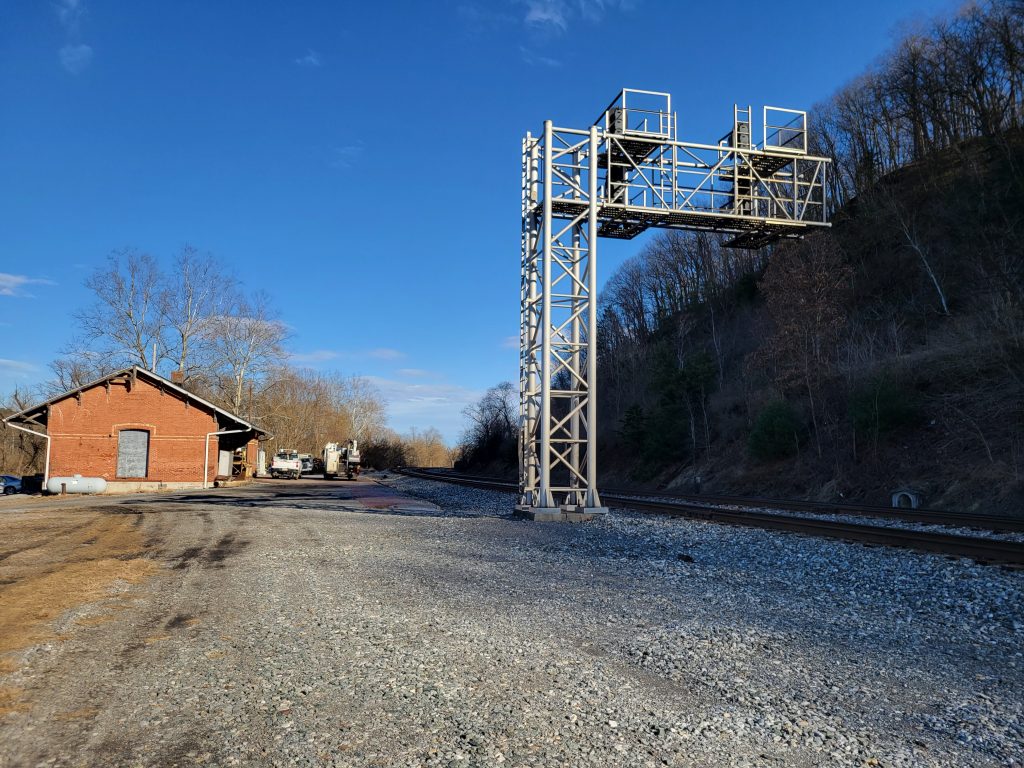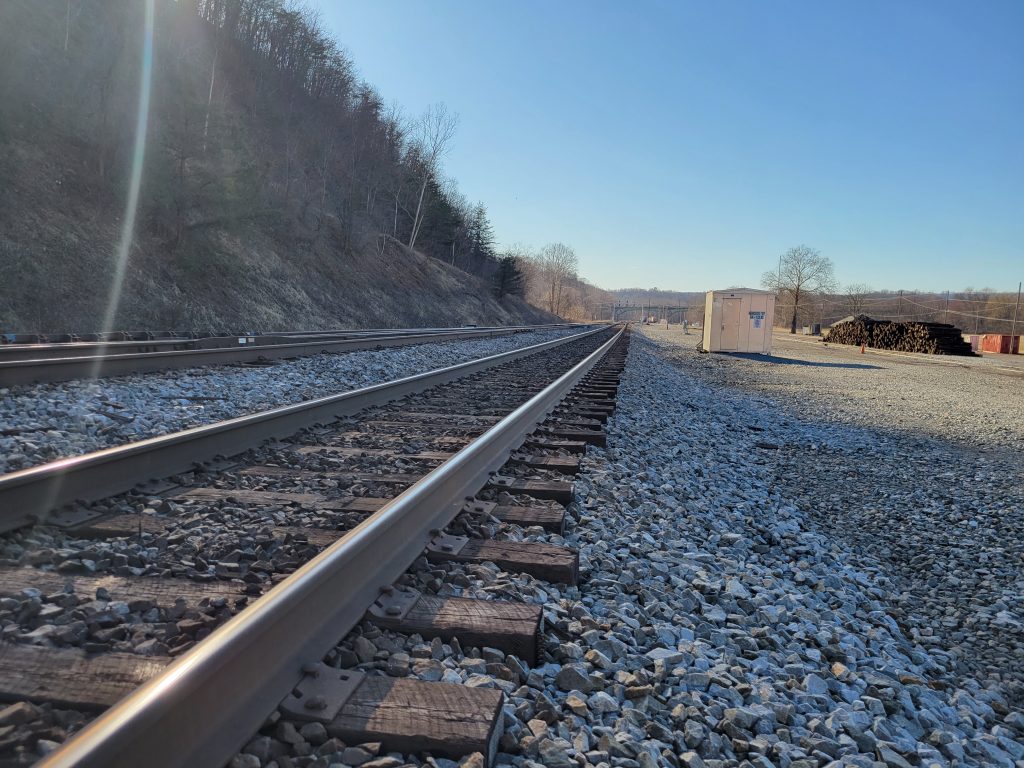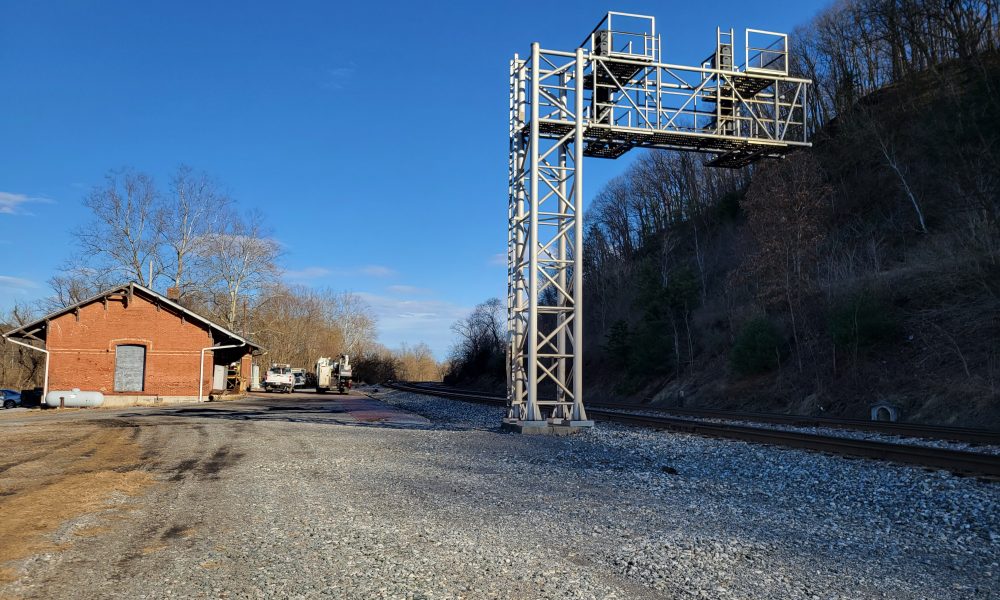by Geoff Fox
The Maryland Department of Transportation Maryland Transit Administration recently announced a study underway about the possible extension of the Brunswick Line westward. One possible stop on an extension could be at the Hancock station.
The initiative for the study is based in part on legislation adopted in 2021 by the Maryland General Assembly in the Transit Safety and Investment Act.
“Our previous meetings with Hancock area officials and others helped inform the study,” said Director of Media Relation of the MTA Jerimiah Moerke.
Those meetings took place prior to 2021 with members of a Morgan County delegation coming to a 2020 Hancock town meeting asking officials to back their efforts to attract the train line to come westward.
Moerke said the potential Western Maryland extension of MARC service is still at an early stage of planning and analysis. The aim, he said, is to develop recommendations by July 1, 2023, on feasibility and estimated cost of extending the rail service to Western Maryland.
MDOT MTA is studying various alignments for extending into Western Maryland, including one going through Hancock.
Moerke also noted the selection of an alternative line of service for Western Maryland would first require gaining railroad approval, identifying a funding plan, and making significant infrastructure investments.
For the Hancock extension, three existing Martinsburg MARC trains would use the existing CSX railroad to Cumberland with an intermediate stop at the Hancock, W.Va., station in Morgan County.
The line already hosts Amtrak’s Capitol Limited with daily service between Washington, Pittsburgh, and Chicago and maintained for passenger speeds with approximately 1/3 of the corridor between Martinsburg and Cumberland.
Travel time between Hancock and Union Station on this line is estimated to be 2 hours and 37 minutes with 12 stops.
The operating agreement between CSX and the State of Maryland would require an amendment to permit MARC service west of Martinsburg and since almost all of the additional distance would be in West Virginia, the agreement between West Virginia and Maryland would also require updating as well.
If the extension comes to Hancock, officials said a new station would have to be constructed at the Hancock, W.Va., and station right-of-way may also be required for a Cumberland station and parking.
A third track would require upgrades for any new MARC service at Hancock. 
Any corridor right-of-way acquisition would see MARC buy the Hancock station and storage yard with some corridor improvements.
According to the Technical Report for the study, these steps would cost less than $50 million.
The CSX line to Hancock in 2018 had 84 commuters to Washington whereas the CSX to Hancock and Cumberland had 202.
The MARC Brunswick Line Study Technical Report was undertaken to “evaluate enhancements to existing service and determine potential benefits and impacts of Western Maryland commuter rail service expansion.”
As work on the study got underway, the COVID-19 pandemic affected work and commuting habits.
“The impact of new commuting patterns is evident on the Brunswick Line with ridership averaging 2,300 daily rides during November 2022, only 32% of the October 2019 pre-pandemic 7,000 average daily rides,” the state report says.
Commuter ridership is recovering, but future rail use will depend on how often Washington employees return to in-person work, and how often they must go into their physical offices.
MDOT MTA said they will share findings of the Technical Report and seek input on priorities for further service in public involvement process, which takes place from January to March.
Following the conclusion of the public comment period, MDOT MTA will initiate four goals, they said.
The first is to record feedback to help prioritize the Brunswick Line options and create a phasing plan for different service scenarios. This phasing plan would be incorporated into an updated MARC Cornerstone Plan and future MARC Investment Programs. As service scenarios are developed, one or more additional trips to Frederick may also be evaluated.
Second would be to closely watch Brunswick Line ridership levels to see if it recovers to pre-pandemic levels. Train officials may redefine “traditional” peak periods and overall ridership patterns.
The third would be to meet with CSX to explore options for commuter service, community use and patterns of use, and consider an extension of commuter rail service to Hancock and Cumberland.
Additional railroad simulation studies may be required by CSX to determine if a third track west of the I-495 Beltway, or long sections of passing track, would add sufficient railroad capacity to allow for additional MARC service, rail officials said.
The final step would be to finalize a report on Western Maryland MARC expansion alternatives by July 1.
Local leaders see promise
In January 2020, Berkeley Springs Town Recorder Susan Webster, along with Morgan County Commissioner Sean Forney, approached Hancock officials about supporting their efforts to get train service to the Hancock, W.Va., station across the river in Morgan County.
Two years later, Webster and Forney returned, bringing Morgan County Commissioner Bill Clark with them to a March 2022 town meeting Hancock, offering Hancock officials get MARC trains to the area.
Webster spoke to The Hancock News about the Brunswick Line extension.
She said she was able to look over the website and the report, noting it was “very interesting” with some technical wording for people if they weren’t in the transportation business.
“But it is very encouraging,” she said.
It’s encouraging, she said, because Maryland legislature passed statutes encouraging this type of work to bring passenger train service to Western Maryland.
Webster said sometimes things like this are done as “feel good legislation” when lawmakers show they are doing something but not really doing it.
“It sure seems to me that it’s taken seriously and I’m very glad to see that and glad to see the entire issue picked back up after the COVID pandemic,” she said.
Webster also noted she was glad MDOT MTA was giving distinct timelines for the public to get their opinions in and have reactions by July 1.
“This is February, so it looks like they are taking it seriously and they want to move along with it,” Webster said.
She also hopes the reports and surveys are made public once they are done and easy to access.
Webster only saw the report this past weekend, so she hasn’t had time to talk with Morgan County officials or Hancock officials but she did have plans to talk to them this week.
“Hopefully they will promote it,” she said.
Webster has been working on the historic train depot in Berkeley Springs and able to work on the rail history in Eastern Panhandle and Western Maryland areas, she said it is interesting and exciting.
“I’m thrilled to help in any way I can,” she said.
Webster said she would also try to talk to West Virginia Del. George Miller and Sen. Charles Trump and get them to work in Charleston since some of the track goes through West Virginia.
Webster said she hoped to talk to Hancock town officials during their February town meeting. 


